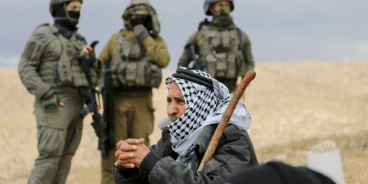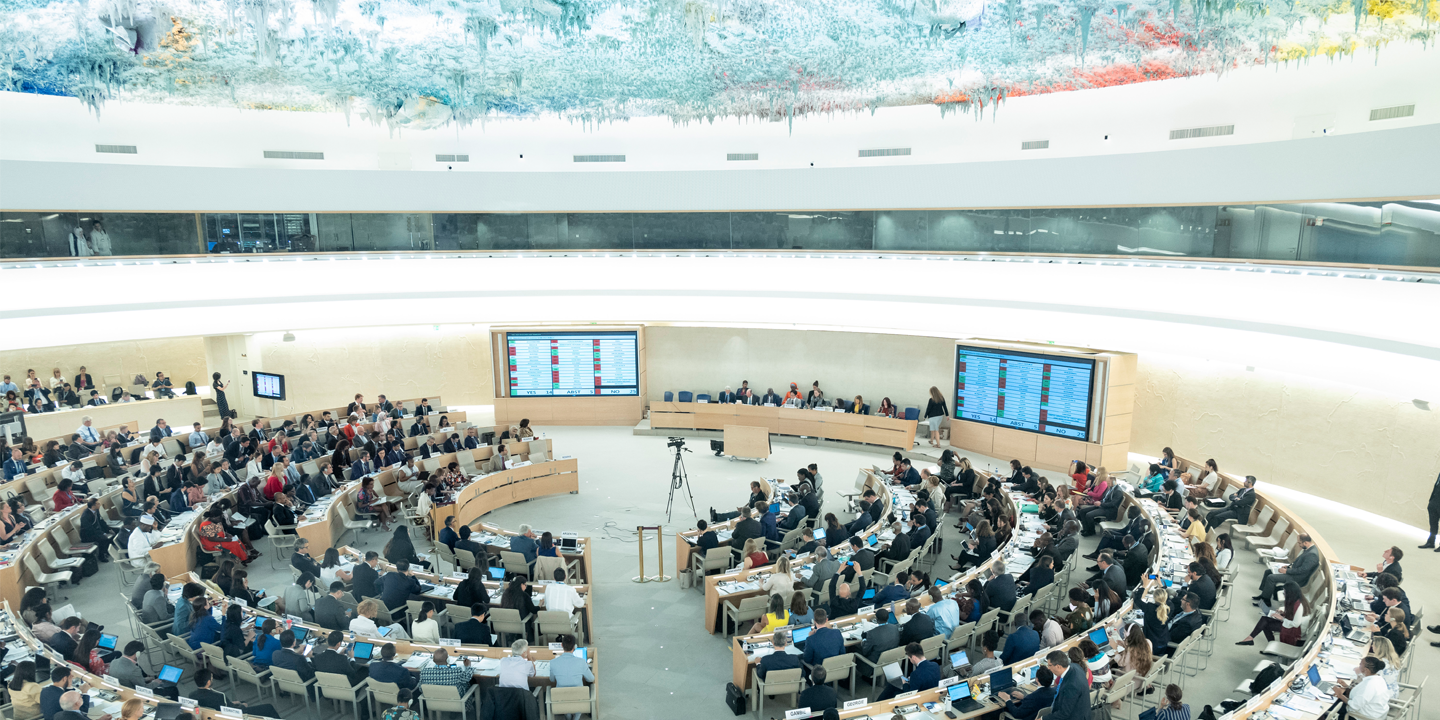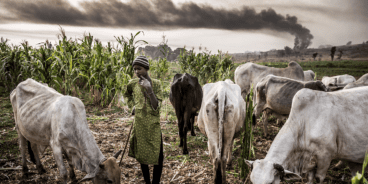

Recommendations for the 45th Session of the Universal Periodic Review
Your Excellency,
In 2005 heads of state and government unanimously agreed on the responsibility of states to protect populations from genocide, war crimes, crimes against humanity and ethnic cleansing. Under the Responsibility to Protect (R2P), it is the primary responsibility of each individual state to protect their own population and the responsibility of the international community to assist them in doing so. The Universal Periodic Review (UPR) of the UN Human Rights Council (HRC) can play an important role in assessing each country’s institutional preparedness to protect human rights and prevent mass atrocities. During the 45th session of the UPR working group, the Global Centre would therefore like to respectfully encourage you to provide all states that are under review with the following recommendations, where applicable:
-
-
- Expeditiously appoint an R2P Focal Point – a senior government official responsible for the promotion of mass atrocity prevention at the national, regional and international level;
- Sign, ratify and implement the core instruments of International Human Rights Law (IHRL) and International Humanitarian Law (IHL), including the Convention on the Prevention and Punishment of the Crime of Genocide, Additional Protocols I and II to the 1949 Geneva Conventions, Rome Statute of the International Criminal Court (ICC), Convention relating to the Status of Refugees and its 1967 Protocol, Arms Trade Treaty and 1954 Convention for the Protection of Cultural Property in the Event of Armed Conflict;
- In keeping with R2P’s Pillar II, request support from other states, as well as regional and international organizations, when atrocity risks exist that cannot be addressed by your state alone;
- Ensure that all national security forces respect human rights and IHL and fulfill their responsibility to protect all populations within the territory of your state, regardless of race, sex, nationality, ethnicity, religion, sexual orientation or any other status;
- Support accountability for atrocity crimes and all relevant institutions of international justice;
- Issue open invitations to HRC-mandated Special Procedures and fully cooperate with all other HRC mechanisms and procedures;
- Protect human rights defenders and the media, as well as the rights of civil society to operate freely, safely and independently;
- Consult and utilize the Framework for Action for the Responsibility to Protect to assess gaps and identify opportunities to address national atrocity risks.
-
In addition to these general recommendations, we respectfully ask you to consider the tailored recommendations provided below for the Central African Republic, China, Nigeria and Saudi Arabia.
Central African Republic
Civilians in the Central African Republic (CAR) continue to suffer from persistent and widespread violence, atrocities and a lack of access to basic services due to protracted insecurity. For nearly three years a loose alliance of predatory armed groups, known as the Coalition of Patriots for Change, and other armed groups have launched attacks while perpetrating widespread violations of IHL, including killing and abducting civilians, forcibly recruiting children, extortion and targeting civilian infrastructure, humanitarian workers and the UN peacekeeping mission in CAR (MINUSCA). The Central African Armed Forces (FACA) – working closely with Russian bilateral forces, including mercenary fighters from the Wagner Group – have responded with counteroffensives, during which the UN has documented evidence of abuses and violations that may amount to war crimes. Ethnic and religious minorities, particularly Fulanis and other Muslims, are being targeted in widespread abuses.
Inter-communal tensions and atrocity risks have also heightened as some armed groups are targeting civilians along ethnic lines. The cross-border flow of foreign fighters, arms and natural resources is contributing to a thriving conflict-economy. Competition for control of profitable minerals has resulted in human rights violations by armed groups and Russian bilateral forces.
Government institutions have cracked down on civil society, journalists and opposition political parties, particularly in the lead up to a controversial constitutional referendum on 30 July 2023. The narrowing of civic space has been marked by intimidation, threats and repressive measures. MINUSCA has recorded hate speech and incitement targeting ethnic and religious communities, migrant workers, particularly transhumance communities, and against dissenting voices.
CAR has a history of widespread impunity that has fueled cycles of conflict and atrocities. Despite ongoing trials at the ICC, the Special Criminal Court for CAR (SCC), the Truth, Justice, Reparation and Reconciliation Commission (TJRCC) and the government’s special commission of inquiry, accountability remains limited with few alleged perpetrators having been arrested, prosecuted or tried for war crimes and crimes against humanity since 2013.
The Global Centre therefore urges you to include the following recommendations to the Central African Republic during the UPR session on 26 January:
-
-
- Immediately end all violations and abuses and ensure FACA and Russian bilateral forces carry out operations in strict compliance with IHL and IHRL and take steps to protect civilians impartially;
- Redefine the strategic and operational framework for the intervention of Russian bilateral forces with time bound objectives and call on these forces to cease impeding cooperation between FACA and MINUSCA;
- Guarantee a safe, respectful and enabling environment for human rights work, including better protection for human rights defenders and victims, as well as the rights to freedom of expression and association;
- Take coordinated steps with the High Council for Communication, political and religious leaders and civil society organizations to prevent hate speech and incitement to violence in the media and on social networks, and take measures to hold those responsible to account;
- Establish a reparation and compensation fund for victims to support and complement the work of the SCC, the TJRCC and national courts in the fight against impunity;
- Bolster cooperation with the Special Prosecutor of the SCC to ensure those responsible for international crimes, regardless of status or affiliation, are identified, arrested and brought to justice without delay;
- Strengthen the organization and operations of the National Commission on Human Rights and Fundamental Freedoms, the National Committee on the Prevention and Punishment of the Crime of Genocide, War Crimes, Crimes against Humanity and All Forms of Discrimination and other institutions working for the promotion, protection and fulfilment of human rights.
-
The Global Centre further respectfully encourages you to consider the following advanced questions for the review of the Central African Republic:
-
-
- Since its last review in 2018, what progress has the CAR government made to enhance the protection of children, prevent and end the use and recruitment of child soldiers and guarantee reintegration of former child soldiers?
- What additional actions will the CAR government implement to ensure all allegations of violations and abuses of human rights and fundamental freedoms, in particular against women, children and other vulnerable groups, are investigated and perpetrators held accountable regardless of the political or military status of the individual?
-
China
Since 2017 – one year before China’s last UPR – the government has severely escalated its long-standing persecution of members of the ethnic Uyghur community, as well as Kazakhs, Kyrgyz and other majority-Muslim ethnic groups under the guise of combating religious extremism and terrorism. Since then, numerous UN experts have documented the role of the Chinese government in committing serious human rights violations and abuses in the so-called Xinjiang Uyghur Autonomous Region(“the Uyghur Region”), including mass arbitrary detentions, forced labor, widespread rape and sexual abuse, torture and ill-treatment, forced abortions and sterilizations, restrictions on religious practice and the destruction of cultural heritage. The imposition of strict control over populations in the Uyghur Region, including through mass surveillance, facilitates ongoing persecution.
In a landmark report released on 31 August 2022, the Office of the UN High Commissioner for Human Rights (OHCHR) determined that the extent of arbitrary and discriminatory detention of Uyghurs and other majority-Muslim ethnic groups may constitute crimes against humanity, and that conditions remain in place for serious human rights violations to continue. In July 2022 the UN Special Rapporteur on contemporary forms of slavery also warned that some instances of forced labor of Uyghurs and other ethnic communities may amount to enslavement as a crime against humanity, meriting further independent analysis. In light of ongoing atrocity crimes, in November 2022 the UN Committee on the Elimination of Racial Discrimination adopted a decision under its “early warning and urgent action procedure” and referred the situation in the Uyghur Region to the UN Office on Genocide Prevention and the Responsibility to Protect. China has responded to intensifying international scrutiny by engaging in systematic reprisals against human rights defenders cooperating with the UN system.
The Chinese government also appears to be intentionally perpetrating at least three other acts prohibited under the Genocide Convention, including causing serious bodily and mental harm; inflicting living conditions that are intended to bring about the group’s destruction; and forcibly transferring Uyghur children to state-run orphanages and boarding schools. The Chinese government’s systematic destruction of cultural heritage aims to erase the history and identity of Uyghurs and other groups, providing further evidence of possible genocide.
In the absence of formally mandated discussions on China’s human rights record at the HRC, China’s upcoming UPR review provides a timely and important opportunity to further international attention and discuss necessary action to prevent further crimes against humanity. The Global Centre therefore urges you to include the following recommendations to China during the UPR session on 23 January:
-
-
- Take swift measures to release all individuals arbitrarily deprived of their liberty in the Uyghur Region, including those currently detained in prisons or other detention facilities;
- Take concrete and immediate steps to clarify the whereabouts of individuals whose families have been seeking information about their loved ones in the Uyghur Region, including by providing details of their exact locations and establishing safe channels of communication and travel to enable families to reunite;
- Immediately cease all acts of reprisals or intimidation against Uyghurs and other ethnic Muslim communities, the diaspora and those who speak out in their defense, both domestically and abroad;
- Urgently repeal all discriminatory laws, policies and practices against Uyghurs and other predominantly Muslim minorities in the Uyghur Region;
- Ensure that victims of human rights violations, including Uyghurs and other ethnic Muslim communities, are provided with adequate and effective remedies and reparation;
- Immediately repeal the “Regulation on De-extremification” and cease all measures aimed at restricting the right to religious freedom for Uyghurs and other majority-Muslim ethnic groups;
- Undertake a full review of its legal framework governing national security, counterterrorism and minority rights in the Uyghur Region to ensure its full compliance with its obligations as a party to the International Convention on the Elimination of All Forms of Racial Discrimination;
- Cease the deliberate destruction of Uyghur cultural heritage and clarify the demolition or damage to thousands of mosques, shrines, cemeteries and pilgrimage sites, as well as several tangible and intangible Uyghur, Kazakh and Kyrgyz cultural items listed by UNESCO;
- Immediately stop the practice of forcibly preventing births and separating Uyghur children from their families;
- Swiftly implement the recommendations issued by OHCHR, including in its report dated 31 August 2022.
-
The Global Centre further respectfully encourages you to consider the following advanced questions for the review of China:
-
-
- What measures will the government take to address documentation and information by UN human rights mechanisms and procedures – including OHCHR – that crimes against humanity are being committed in the Uyghur Region?
- Will the government commit to implementing the recommendations issued by OHCHR in its report from August 2022?
-
For further assessment of the situation in China, see the Global Centre’s submission from July 2023.
Nigeria
Populations in Nigeria are at risk of atrocity crimes as a result of multiple security threats. Recurrent violence between herding and farming communities, rooted in competition over scarce resources, has escalated in central and north-west Nigeria since 2021. Largely in response to these growing tensions, armed groups and gangs, including so-called “bandits,” have formed and perpetrated widespread abuses, including organized cattle-rustling, kidnapping, plunder, murder and rape. Intensified military operations by the government in attempts to curb the activities of armed bandits has killed hundreds of civilians since 2021.
Violence perpetrated by armed extremist groups, namely Boko Haram and the so-called Islamic State in West Africa (ISWA), against civilian and military targets has also resulted in mass atrocities in northern Nigeria – with more than 35,000 people killed since 2009. Their tactics include killings, suicide bombings, abductions, torture, rape, forced marriages and the recruitment of child soldiers, as well as attacks that are directed against government infrastructure, traditional and religious leaders and civilians. During counterterrorism operations, Nigerian security forces have reportedly committed human rights violations and used excessive force, including extrajudicial killings, rape, torture and arbitrary detentions against suspected Boko Haram and ISWA members, as well as civilians.
The Global Centre therefore urges you to include the following recommendations to Nigeria during the UPR session on 23 January:
-
-
- Ensure accountability for atrocity crimes and grave human rights violations and abuses, including by conducting prompt, thorough, independent and impartial investigations into all allegations regardless of the perpetrator;
- Guarantee that all security forces are trained on IHL and international human rights standards, particularly on the prohibition of torture and ill-treatment;
- Strengthen military protection for vulnerable populations and increase police and military deployments to high-risk areas while ensuring strict adherence to IHL and IHRL during operations;
- Ensure that all detainees are treated humanely in accordance with national and international legal standards;
- End the detention of children – for their actual or alleged association with parties to the conflict – and guarantee their treatment is in accordance with national and international juvenile justice standards;
- Prioritize social initiatives and political reforms for confronting the root causes of conflict, including poor governance, corruption, poverty, youth unemployment and environmental degradation;
- Guarantee freedom of expression and information through the independence and pluralism of the media and ensure an enabling environment for free and independent media, as well as a safe and enabling environment for members of the political opposition, civil society organizations, human rights defenders and journalists;
- Ensure prompt investigations of attacks against members of the political opposition, civil society organizations, human rights defenders and journalists and bring those responsible to justice.
-
The Global Centre further respectfully encourages you to consider the following advanced questions for the review of Nigeria:
-
-
- How is the government of Nigeria ensuring that military and security operations against armed actors are in accordance with national and international legal standards?
- What measures has the government of Nigeria taken to hold its armed forces accountable for patterns of violations of IHL and IHRL?
-
Saudi Arabia
Since 2015 a Saudi Arabia and United Arab Emirates (UAE)-led international coalition has perpetrated indiscriminate and unlawful attacks against civilians in Yemen in violation of IHL. Coalition airstrikes have hit residential neighborhoods, critical civilian infrastructure and detention facilities. More than 19,200 civilians, including over 2,300 children, have been killed or maimed as a result of these airstrikes alone. The HRC-mandated Group of Eminent Experts (GEE) on Yemen documented that Saudi Arabia’s pattern of indiscriminate airstrikes and shelling may amount to war crimes. The Saudi/UAE-led coalition has also blocked access to critical humanitarian aid, despite Yemen enduring one of the world’s largest humanitarian crises, with more than 23.4 million people in need of life-saving humanitarian assistance.
In October 2021 Saudi Arabia imposed significant diplomatic and political pressure on UN member state to halt the renewal of the mandate of the GEE – the only international independent mechanism dedicated to monitoring international law violations in Yemen. Consequently, civilians in Yemen suffered from a dramatic escalation in armed hostilities and indiscriminate bombing, with the Saudi/UAE-led coalition carrying out over 200 air raids per month between October and April 2022. More than 2,050 civilians were killed or injured during this period, including over 471 as a result of coalition airstrikes.
Although there has not been a significant escalation in hostilities and no airstrikes have occurred since the start of a truce brokered by the UN Special Envoy for Yemen in April 2022, there have been no credible investigations into allegations of international law violations. There have also been no meaningful steps taken towards ensuring justice and reconciliation, including redress and reparations, for victims of likely war crimes in Yemen.
The Global Centre therefore urges you to include the following recommendations to Saudi Arabia during the UPR session on 22 January:
-
-
- Ensure the people of Yemen’s rights to justice feature prominently in any negotiated settlement;
- Urgently conduct thorough, independent and transparent investigations into all credible allegations of IHL violations, including through the coalition’s Joint Incidents Assessment Team, and proactively support any initiative working towards accountability for likely war crimes and crimes against humanity perpetrated in Yemen.
-
The Global Centre further respectfully encourages you to consider the following advanced question for the review of Saudi Arabia:
-
-
-
- What concrete steps is Saudi Arabia pursuing to provide sufficient reparations to victims and their families for damages sustained as a result of the coalition’s indiscriminate and unlawful airstrikes in Yemen?
-
-
Related Content


Atrocity Alert No. 444: Nigeria, Haiti and South Sudan
